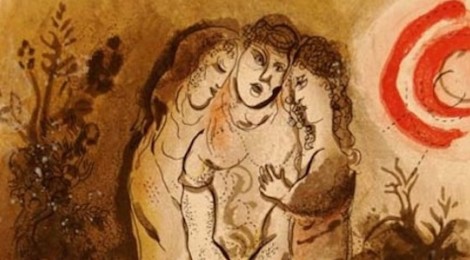
RUTH – THINGS ARE NOT ALWAYS AS THEY APPEAR #3
One of the most beloved and popular women in the Bible is Ruth! Of course. And why not. She was a young widow, a foreigner, followed her mother-in-law to Bethlehem and was swept away in this fabulous romance and eventually became the grandmother of King David and the great, great, great… grandmother of Jesus. Besides, who can forget that amazing quote… ”Don’t urge me to leave you or to turn back from you. Where you go I will go, and where you stay I will stay. Your people will be my people and your God my God. Where you die I will die, and there I will be buried. May the Lord deal with me, be it ever so severely, if even death separates you and me“ (Ruth 1:16-17).
She was the first person I thought of when I had the idea to write this series. But upon further study and knowledge of ancient culture I learned a few things that take Ruth off that pedestal that so many of us like to put her on. Not that she is not an amazing woman, but she has issues that I think many of us will relate to.
At this time in history, what is now known as Middle Assyrian, the primary role of women was to marry and bear children. After the betrothal and wedding feast, the bride moved into her husband’s family home and that ended the rights of her family of birth to her person or property. Married women became the legal property of their husbands. LEGAL property.
So here we are at the beginning of the story with three widows left (the husbands of all three had died) – one older widow and two younger widows. Now, you recall the role of a woman in this society… marry and BEAR CHILDREN. Ruth, and Orpha, were widows and had no children after several years of marriage. They both would have been shamed by society just being a widow but more importantly for not having any children.
Even today, infertility is such a difficult issue. Those who struggle with it cannot talk about it. Women break down weeping over not being able to have a child of their own. Those of us who have had children cannot know the unspeakable grief and desperation that those who cannot have children suffer each and every day. Imagine a society where your only DUTY as a married woman is to bear children and you are not able to. The shame, guilt, jealousy and constant ridicule they must have felt and endured. Add to this, now their husbands are dead and there is no possibility of ever having children… I lived in modern day Bethlehem, an Arab society. Here you are almost expected to get pregnant on your honeymoon or as soon as possible. Those that don’t have children right away are continually “harassed” by friends and family. It is no wonder that Ruth wanted to escape. It would seem her “where you go, I go” had a strong ulterior motive.
Although I have not walked the road of infertility, I understand the immense grief associated with the loss of a child. Seven years ago I lost a son in tragic circumstances. I’m not sure how to describe the feelings I had early on… it was a sense of shame that I lost the child. I wanted to run away from everyone I knew. I was embarassed. These are odd feelings to have, but I experienced them. I think I can understand a bit of how Ruth may have felt.
Most of us have put Ruth on a pedestal. What I always read in the Bible showed a strong woman that despite the death of her husband, she would follow Naomi because she wanted Naomi’s God to be her God. Honestly, I’m not sure that had as much to do with it based on historical evidence. Perhaps Ruth was running away and this was her chance to get out of dodge. She was going to a land where no one knew her – no one knew her past, her shame, her grief, her pain. She wanted to hide.
Wow. That sheds a whole new light on this story. And, I think WE do this a lot. We try to hide from our past, our sin, our situation, etc. We even try to hide from God. But he knows us and finds us and carries us. Remember after Adam and Eve sinned? They realized they had sinned and the first thing they did was hide from God. But who came walking in the garden looking for them? God did. God knew what happened and he went after them. Once they confessed, do you recall what else He did? He covered their nakedness. He showed compassion and loved them despite their sin and despite their running away.
Romans 8:31-39 seems to give full meaning to this…
“What, then, shall we say in response to these things? If God is for us, who can be against us? He who did not spare his own Son, but gave him up for us all—how will he not also, along with him, graciously give us all things? Who will bring any charge against those whom God has chosen? It is God who justifies. Who then is the one who condemns? No one. Christ Jesus who died—more than that, who was raised to life—is at the right hand of God and is also interceding for us. Who shall separate us from the love of Christ? Shall trouble or hardship or persecution or famine or nakedness or danger or sword? As it is written: “For your sake we face death all day long; we are considered as sheep to be slaughtered.” No, in all these things we are more than conquerors through him who loved us. For I am convinced that neither death nor life, neither angels nor demons, neither the present nor the future, nor any powers, neither height nor depth, nor anything else in all creation, will be able to separate us from the love of God that is in Christ Jesus our Lord.”Nothing will separate us from God. And God will find us and have mercy on us. I think Ruth’s story is a perfect example of that mercy – Ruth who eventually become the grandmother of King David and the great, great, great grandmother of Jesus. God found her, gave her a future, redeemed her and He will find you where ever you are…
Coming soon: Ruth’s Redemption.
